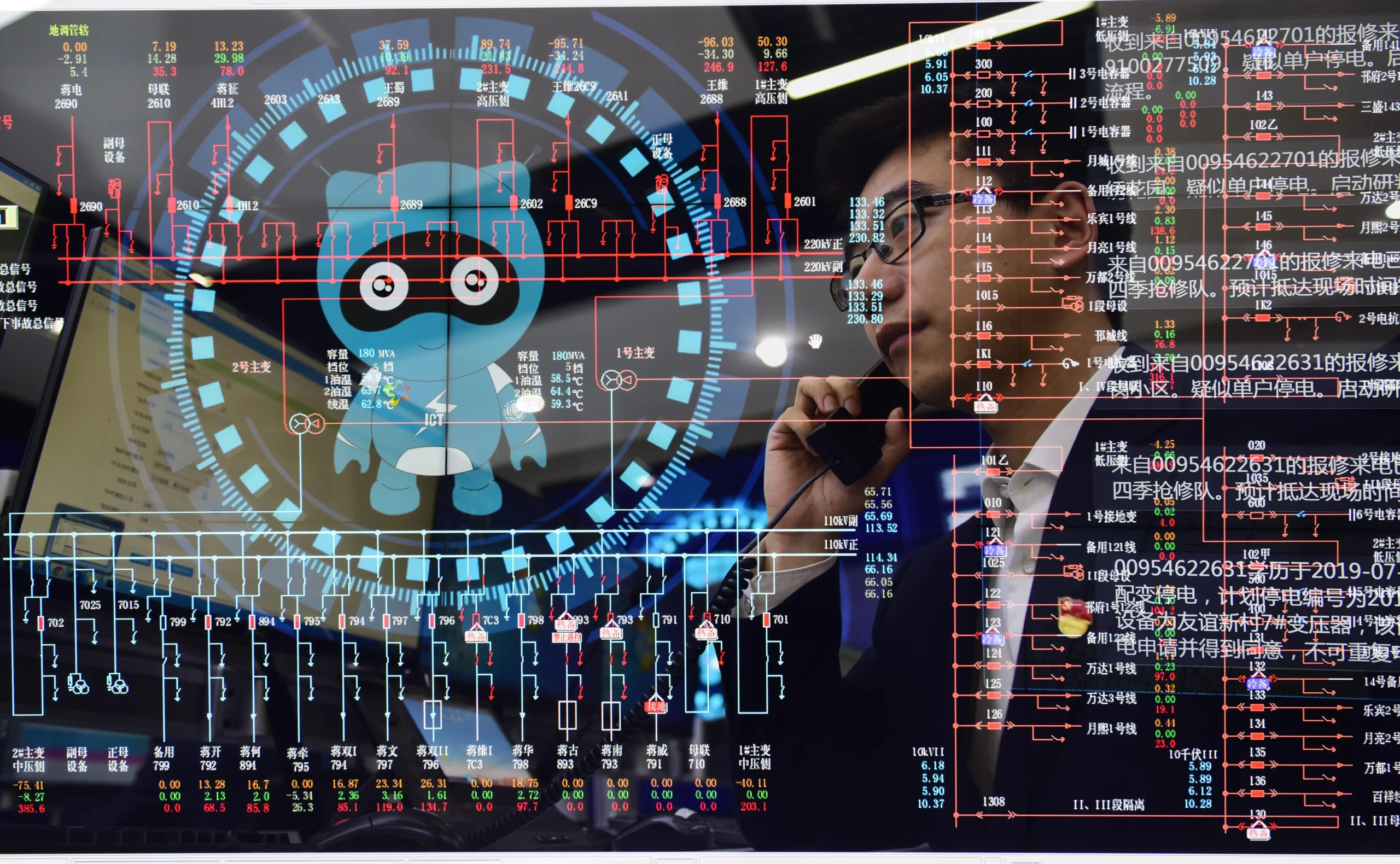[ad_1]
- Technological developments have fully modified how companies run, interact with clients, and promote financial progress.
- Digital improvements like cloud computing, large knowledge analytics, and machine studying have given organisations entry to real-time info and personalised providers.
- Disruptive applied sciences, characterised by their skill to considerably alter the enterprise and social panorama, have pushed huge financial transformations.
Technological change profoundly impacts companies and the worldwide financial system in at present’s quickly evolving digital panorama. Technological developments have fully modified how companies run, interact with clients, and promote financial progress.
Technological change has catalysed financial transformation, pushed by varied technological developments. Companies continuously adapt to new applied sciences to remain aggressive, enhance effectivity, and meet evolving shopper calls for. The Web of Issues (IoT) and automation are examples of technological developments which have fully modified varied industries and organisational constructions.
Technological change has reshaped work, resulting in new employment patterns and talent necessities. The gig financial system, involving short-term contracts and freelance work, has gained prominence, providing flexibility and new revenue alternatives. Know-how that permits individuals to work from anyplace with an web connection has made distant employment and digital nomadism extra frequent.
Nonetheless, because the workforce digitises extra, there’s a rising want for digital expertise. Individuals who wish to succeed within the digital financial system want numerous expertise, together with digital literacy, problem-solving, essential considering, and adaptableness. Lifelong studying and upskilling initiatives guarantee people can navigate the evolving job market and stay employable regardless of technological developments.
Digital Transformation in Enterprise
The digital transformation of enterprise refers to integrating digital applied sciences into all operations. This transformation has resulted in essential modifications in how organisations run and ship worth to clients. Due to this transition, companies can now streamline processes, enhance consumer experiences, and use knowledge to make clever choices.
Digital improvements like cloud computing, large knowledge analytics, and machine studying have given organisations entry to real-time info and personalised providers.
Firms can optimise their provide chains, automate routine duties, and leverage data-driven advertising and marketing methods to successfully goal particular buyer segments.
Disruptive Applied sciences and their Financial Potential

Disruptive applied sciences, characterised by their skill to considerably alter the enterprise and social panorama, have pushed huge financial transformations.
A few of these applied sciences embrace superior robots, genomes of the long run, vitality storage units, 3D printing, driverless automobiles, and renewable vitality sources. These applied sciences current distinctive alternatives and challenges for companies and the broader financial system.
Over the previous 20 years, know-how has reworked the world unprecedentedly. The widespread integration of the web, social media, and cellular units have related individuals globally, revolutionising communication and entry to info.
Moreover, the expansion of Web markets and crowdfunding platforms has opened up new channels for funding and dissemination. Bypassing typical middlemen, small companies and entrepreneurs can now talk immediately with potential traders and purchasers. Nonetheless, to totally capitalise on these alternatives, small companies should embrace digitalisation and put money into know-how infrastructure.
At this time, greater than half the world’s inhabitants has web entry. This interconnectedness has accelerated globalisation, created new enterprise fashions, and facilitated cross-border commerce.
Moreover, the short improvement of digital applied sciences has facilitated the institution of cutting-edge platforms and providers, upending established sectors like transportation, lodges, and retail. Uber, Airbnb, and Amazon, amongst different companies, have reworked their respective industries utilizing know-how to displace opponents and alter shopper conduct.
The Financial Paradigm Shift: Challenges and Alternatives
Whereas technological change brings immense alternatives, it additionally challenges companies and the financial system. One key problem is making certain widespread participation in the advantages of technological developments. The digital divide between these with it and people with out it could possibly doubtlessly exacerbate already present inequalities and hinder inclusive financial progress. Efforts must be made to shut this hole by enhancing digital infrastructure, providing cheap web entry, and selling digital literacy and expertise coaching applications.
One other challenge is the attainable lack of jobs as a consequence of automation and synthetic intelligence. Sure positions and duties may be automated as know-how develops, elevating issues about job losses and the need of reskilling and upskilling the workforce. Funding instructional and coaching initiatives that give individuals the skills required within the digital age is important.
Nonetheless, regardless of these challenges, technological change additionally presents quite a few alternatives for companies and the financial system. It allows the creation of recent industries and job roles that have been beforehand unimaginable. For example, the blooming of e-commerce has elevated alternatives for small companies and entrepreneurs to contact purchasers worldwide by opening up international marketplaces.
Know-how-driven improvements have the potential to unravel societal issues and encourage long-term financial enlargement in varied sectors, together with transportation, healthcare, and renewable vitality.
Insurance policies for Embracing Technological Change

An enabling setting is important to harnessing the advantages of technological change. Governments and policymakers ought to foster innovation-friendly ecosystems that encourage analysis and improvement, present incentives for entrepreneurship, and shield mental property rights. Policymakers should steadiness selling innovation and making certain accountable and moral use of know-how, significantly in knowledge privateness and cybersecurity.
Collaboration between the general public and industrial sectors is essential for overcoming the challenges posed by technological change. Public-private collaborations can facilitate information sharing, mobilise sources, and create authorized frameworks that assist shopper safety, aggressive equity, and moral use of creating applied sciences.
Nonetheless, moral issues and accountable synthetic intelligence (AI) improvement are essential. Equity, transparency, and accountability in AI programs forestall biases, discrimination, and unintended penalties. Clear insurance policies and laws for AI improvement and deployment should be established.
Conclusion
Technological change has turn out to be integral to the enterprise panorama and the worldwide financial system. It presents quite a few alternatives for innovation, effectivity, and financial progress. Nonetheless, it additionally poses challenges requiring proactive measures and collaborative efforts from governments, companies, and society. Embracing technological change responsibly, addressing its affect on jobs and inequality, and making certain moral and sustainable practices are key to harnessing its transformative potential and making a affluent future.
Technological change gives alternatives to handle urgent environmental challenges and promote sustainability. From renewable vitality options to good grid programs, know-how may help cut back carbon emissions, optimise useful resource utilization, and management the results of local weather change. Firms that embrace sustainable practices and combine environmental issues into their operations can improve their fame and entice environmentally aware shoppers.
[ad_2]






